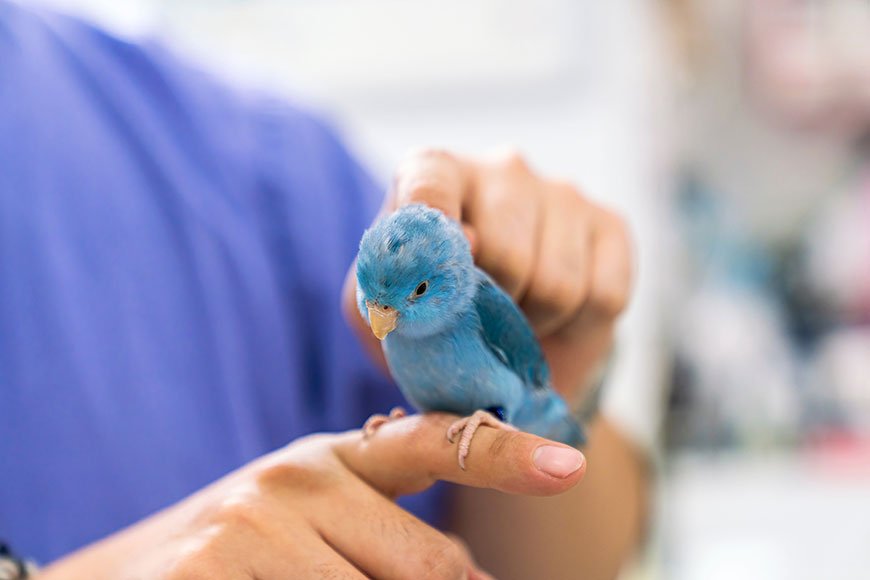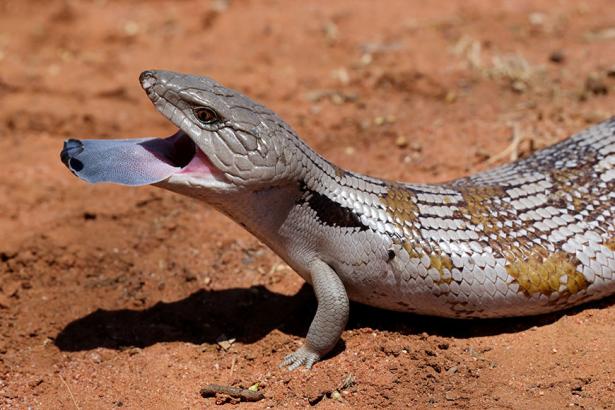Compared to a generation ago, exotic companion animals are now living longer, happier, and healthier lives. Modern advances in species appropriate nutrition and husbandry undoubtedly have an impact on the general health of your pets. However, longevity and good health also depend on regular, excellent veterinary care. Unfortunately, it can be quite difficult to find a skilled exotic animal vet. The details and advice below will help you make an informed choice, whether you’re looking for a new exotic bird vet, reptile vet or wondering if your existing veterinarian is still the best choice for you and your exotic pet.
One veterinarian cannot treat all species of animals
Although many veterinarians are capable of caring for multiple species, their standard education consists of a generalist curriculum that lays out the fundamentals of care for animals like dogs, cats, cattle, and horses. After all, it would take much longer than four or five years of veterinary school to learn how to correctly diagnose and treat every single type of animal. This implies that many veterinarians who graduate and begin working have little experience with exotic animals. Extra training is required for veterinarians who have a special interest in treating exotic pets in order to broaden their skill set beyond the more “typical” domesticated animals. In addition, an exotic animal hospital is specially equipped to treat and care for exotic pets.
Cats are not small dogs
Despite certain possible parallels between species, treating all animals equally could have fatal results. For example, the nutritional needs of cats differ significantly to that of dogs; cats are obligate carnivores and dogs are omnivores. Cold blooded reptiles are vastly different to warm blooded mammals. An exotic animal doctor is aware of the value of treating each species differently. They are adept at seeing minor changes that could point to a developing health issue because they are aware that the majority of exotic pets are prey species and successfully conceal symptoms of disease or injury.
Finding a veterinarian who is qualified to treat your pet may not be simple, but it shouldn’t be difficult either, as we’ve established. Here are some suggestions on how to find an unusual pet vet for your exotic companion:
Ask your dog or cat vet – Your local dog or cat vet most likely refers exotic pets to other vets in the area who specialise in those animals, making them a good resource when searching for an exotic pet clinic.
Word of mouth – Any successful veterinarian will tell you that word-of-mouth recommendations are one of the best methods to discover an exotic animal vet that meets your needs. Speak with other exotic animal owners. Join online discussion forums and social media communities.
Animal shelters and wildlife rescue organisations – These groups collaborate closely with veterinarians to provide for the animals under their care. There’s a strong likelihood that the shelter or wildlife rescue where you live will be able to recommend an exotic animal clinic that is knowledgeable in treating your pet.
Veterinary associations – There are a number of organisations for professionals who specialise in or have experience with exotic species. In Australia, every veterinarian needs to be registered with the veterinary board in the state where they practise. In addition, an exotic vet is likely to also have professional memberships to organisations specific to the animals they treat – for example a bird veterinarian should be a member of the Association of Avian Veterinarians.
So, if you are considering getting an exotic pet, do your research and find an exotic animal veterinarian who is experienced in treating these animals.
FAQs
Some common problems that exotic animal vets treat are parasites, malnutrition, and injuries. They also provide routine care, such as vaccinations and check-ups. Vets at the local bird and exotic animal clinic work closely with owners to ensure that their pets are healthy and happy.
If you have an exotic animal, finding a qualified veterinarian to care for your pet can be a challenge. You can ask your regular veterinarian if they have any recommendations or check with local animal shelters or rescue groups. Another option is to search online for an exotic vet clinic that specialises in caring for exotic animals.
The life of an exotic animal vet is both rewarding and challenging. While it can be exciting to work with a variety of animals, it can also be difficult to treat them effectively. Exotic pets are very different from domestic animals, and they require specialised care at an exotic pet hospital. Exotic animal vets are also highly respected and sought out by other vets. Because of their expertise, they can help other vets learn about new species and treatment options for exotic animals.






2 Comments
Comments are closed.